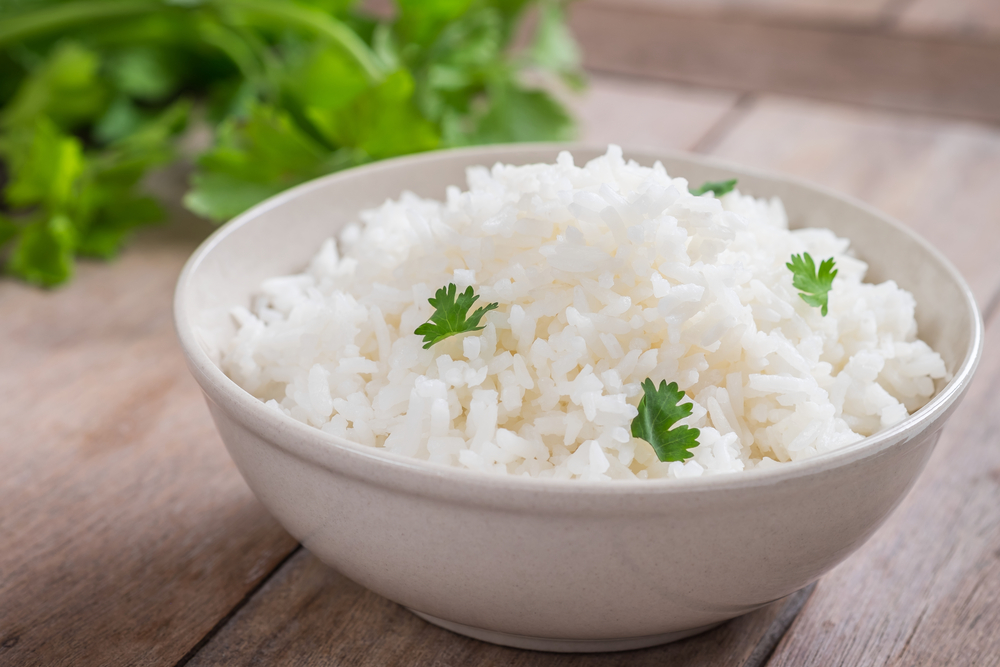The inclusion of carbohydrate supplementation post-workout and/or during strenuous training sessions has repeatedly been shown to increase muscle glycogen levels, enhance protein synthesis, and increased exercise performance. Serious strength, power, and fitness athletes should understand the positive effects muscle glycogen can have on their ability to increase lean muscle mass, recover from stranger training sessions, and increase muscle growth.
Therefore, in this article we will discuss what you need to know about muscle glycogen, specifically:
- What is Muscle Glycogen
- Who Should Be Concerned About Muscle Glycogen?
- Dietary Recommendations – Increasing Muscle Glycogen
- Muscle Glycogen and Serious Athletes
- Low Levels of Muscle Glycogen and Training
What is Muscle Glycogen?
In short, muscle glycogen can be defined as the primary fuel source for skeletal muscle tissue during prolonged strenuous exercise, such as training for sports like powerlifting, weightlifting, strongman, and competitive fitness. Low levels of muscle glycogen have repeatedly been shown to be one of the key physiological factors that contributes to increased perceived rates of fatigue, increased rate of exhaustion during strenuous exercise, and even plays a role in one’s ability to maintain rigour levels of anaerobic capacity.
Simply put, muscle glycogen is often regarded as the preferred energy source of all our muscles, and without it our peak physical performance more than likely will be inhibited (1).

However, the negative effects that can come with low levels of glycogen will be highly variable from individual-to-individual. For example, recreational athletes who consume a consistent, balanced diet will most likely not need to concern themselves with any form of carbohydrate supplementation with the goal being on glycogen replenishment — more on that below.
Who Should Be Concerned About Muscle Glycogen?
For serious strength athletes, muscle glycogen depletion can be a serious hindrance on exercise performance and recovery. However, most individuals will find consuming balanced quality diet with enough calories from fats, proteins, and carbohydrate sources will suffice for maintaining optimal muscle glycogen levels.
In the section below, we take a deeper look at a variety of athletes, training levels, and training goals and how glycogen may pertain to them; offering insight regarding the need for muscle glycogen and replenishment strategies.
Beginners
For most beginners, muscle glycogen is not a high concern when discussing exercise performance and/or dietary modifications. For most beginners and intermediate lifters/athletes, establishing a balanced diet and overall caloric intake should be addressed first, as well as addressing proper hydration, sleep, and training behaviors.
If a beginner can establish proper eating strategies to consume adequate overall calories from a balanced diet of proteins, fats, and carbohydrates, then they will often have sufficient muscle glycogen availability.
Additionally, most beginners typically train at lower volumes and frequencies which may have limited impact on muscle glycogen depletion in the first place. Beginners who experience things like low levels of energy, stalled performance, or poor recovery —may simply be experiencing inadequate caloric consumption, poor food quality, irregular or insufficient sleep, stress, adverse responses to training, and/or lack of motivation — which do not necessarily reflect glycogen levels.
Strength and Power Athletes
On top of true beginners, beginner and intermediate strength and power athletes will often have minimal issues with glycogen depletion/repletion if they are consuming adequate amounts of calories and carbohydrates within their diet. Often, fatigue can be a result of poor recovery, lack of sleep, stress, and inability to cope with training stressors. Rest and modification of programming volume and intensity are often remedies for what seems like chronic fatigue.
Serious strength and power athletes, however, often train with higher volumes, intensities, and frequencies, which can deplete muscle glycogen stores if ample caloric consumption is not a priority, or they are dropping weight for a weight class goal. Some serious lifters/athletes may find that during periods of higher training volumes, frequencies, and competition prep that focusing on ingesting additional carbohydrates and/or increasing caloric content around workouts, primarily from carbohydrate sources, may improve recovery and exercise performance.

Fitness and CrossFit Competitors
High-intensity, high-volume based training often relies on carbohydrates sources to fuel muscle contractions. Similar to most beginners and intermediate lifters, fitness and CrossFit athletes who consume adequate calories throughout the day from fats, proteins, and carbohydrates will often have sufficient muscle glycogen availability.
Some serious fitness and CrossFit athletes who train multiple sessions per day, have extended sessions, and/or are training at very high volumes and frequencies may find that emphasizing the below muscle glycogen replenishment strategies may improve their recovery and exercise output during subsequent training sessions.
Endurance Athletes
Aerobic and anaerobic processes are used to produce energy to fuel endurance athletes. At higher training intensities, often found around 75-80% of VO2 max, there is a dramatic increase in carbohydrate utilization as a fuel source, referred to as the ventilatory threshold (VT).
For endurance athletes and recreational runners, training at or below the VT is primarily fueled by aerobic processes that oxidize primarily fats to fuel training. While there is still a need for carbohydrates to kickstart the Krebs Cycle (fat oxidation process), carbohydrate availability is typically not an issue in most endurance athletes/runners who eat sufficient calories and are training less than 60-minutes per session.
Note, there are slightly different guidelines for more advanced aerobic endurance athletes (half-marathons, marathons, ultras, etc.) as carbohydrate ingestion at various intervals during prolonged training sessions can be beneficial for prolonged exercise performance. Ingestion of fast-digesting carbohydrates, while not directly impacting muscle glycogen replenishment, does help to minimize depletion of muscle glycogen as it can more easily be used for immediate fuel during training; ultimately preserving muscle glycogen stores.
For more serious endurance athletes who train at or above the VT, carbohydrate ingestion can be a key nutritional strategy to increase exercise performance. Serious endurance athletes who train at these higher intensity can often benefit from replenishing muscle glycogen stores regularly during training blocks of higher volumes and frequency of sessions at higher intensities (% of VO2 max).
Bodybuilders
Assuming beginner and intermediate bodybuilders are consuming adequate amounts of calories; muscle glycogen depletion is often not a high concern. Availability of carbohydrates, which are the primary fuel for forceful muscle contractions, can be accomplished by consuming a diet that supplies enough calories to fuel training and recovery.
Competitive bodybuilders more prone to dieting and who train with higher intensities and volumes, may find that their recovery can be supported by emphasizing the importance of pre, intra, and post-training nutrition strategies to optimize carbohydrate ingestion/replenishment.
General Fitness and Health
Similar to most beginner and intermediate lifters, athletes, and individuals, the typical fitness enthusiast will have adequate muscle glycogen availability. Assuming there is adequate consumption of calories from a well-balanced diet, most general fitness enthusiasts will have minimal issues with exercise performance due to lack of muscle glycogen availability.
Typically performance decrements in this population arise from poor nutrition and training factors, such as poor sleep, stress, dehydration, poor food quality, lack of motivation, and malnutrition (over and/or under eating). It is important that a strong foundation of nutrition and training behaviors are established for general fitness and overall health improvements.

Dietary Recommendations for Increasing Muscle Glycogen
With individuals who are training hard with high volumes, and are highly competitive athletes, muscle glycogen optimization can be a key contributor to sports performance and muscle growth. For beginners and recreational lifters, however, a well-balanced diet of carbohydrates, fats, and proteins, regardless of meal timing, can suffice if the athlete is consuming enough calories.
Below are some general dietary recommendations for beginners and more advanced athletes on how to optimize muscle glycogen if necessary.
Beginners and Recreations Lifters
As discussed above, muscle glycogen depletion is often not an issue with most beginner, intermediate, and even highly active recreational lifters. Most individuals will be eating enough calories and carbohydrates to adequately refill muscle glycogen stores.
Highly Competitive Athletes
Research tends to suggest that increased carbohydrate and protein consumption after strenuous training sessions/events can significantly improve muscle function and aerobic performance in subsequent bouts of training (in some studies only a few hours apart). In terms of consumption, research suggests consuming 0.8g of carbohydrate per kilogram of body mass post exercise, with a further increase in glycogen synthesis with the ingestion of an additional 0.4g of carbohydrates per kilogram of body mass taken every 30 minutes during strenuous exercise. To maximize glycogen and protein synthesis, it is suggested to also ingest around 0.4g of protein per kilogram of body mass after strenuous training sessions (2).
Muscle Glycogen for Serious Athletes
When strength athletes train hard, the muscles use muscle glycogen to fuel contractions that promote the force necessary in movements like deadlifts, squats, presses, cleans, along with other muscle building exercises. Without adequate stores of muscle glycogen, the body may feel unprepared to fuel itself for the challenging task of training at one’s programmed levels of intensity and volume.
Some research suggests that post-workout carbohydrate ingestion — specifically consuming fast-digesting carbohydrate sources like simple carbs that lack fats and fiber, which slow down absorption — have been shown to significantly increase plasma insulin levels and in turn increase protein synthesis 36% when compared to exercise alone (3). Additionally, urinary nitrogen and other compounds suggesting muscle breakdown levels were significantly lower following carbohydrate supplementation after strenuous exercise, further supporting an increase in muscle growth.
More importantly, however, is that when carbohydrates are paired with a protein and ingested post-workout, research has suggested that the body experiences an increased amount of protein synthesis when compared to a meal containing only carbohydrates (4). This was also supported by a study that suggested a complete meal consumed post-workout of carbohydrates and a protein source stimulates increased levels of mRNA translation (5).

Low Levels of Muscle Glycogen and Training
As one may have guessed, decreased levels of muscle glycogen is not preferable for optimal performance in either aerobic or aerobic sports, strength and power training, and/or for the creation of new muscle tissue. If one experiences periods of time with decreased muscle glycogen levels, then they could experience the following:
Increase Muscle Fatigue
Chronic low levels of muscle glycogen depletion can result in higher levels of muscle fatigue during a session. Often, this can be remedied fairly quickly by ingestion of fast-carbohydrates and closer attention to nutrition, which is discussed below.
Decreased Power Output
Since carbohydrates are the preferred source of energy for skeletal muscles, then lacking stores could limit one’s ability to produce the maximal amount of power possible during workouts. With decreased levels of muscle glycogen comes increased levels of muscle fatigue and the inability to promote fast, forceful muscle contractions.
Lack of Recovery
For serious strength athletes, it is important to replenish used muscle glycogen levels after hard training for multiple reasons including, (1).
- Boost insulin sensitivity
- Stimulate muscle protein synthesis (2)
- Prepare for upcoming training sessions in the day/week(3)
- Limit the amount of muscle damage caused by training.
Long story short, without properly addressing low levels of muscle glycogen in hard training, then you can run the risk of depleting energy reserves within muscle tissues and limiting protein synthesis necessary for muscle growth.
More About Sports Nutrition
Love this article? Take a look below at some of our other sports nutrition articles to improve muscle growth, recovery, and performance.
References
- Ivy, J. (2005). Regulation of Muscle Glycogen Repletion, Muscle Protein Synthesis and Repair Following Exercise. International Society of Sports Nutrition Symposium. Retrieved May 2, 2018, from https://www.ncbi.nlm.nih.gov/pmc/articles/PMC3905295/#ref33.
- Loon, L. J., Saris, W. H., Kruijshoop, M., & Wagenmakers, A. J. (2000). Maximizing postexercise muscle glycogen synthesis: Carbohydrate supplementation and the application of amino acid or protein hydrolysate mixtures. The American Journal of Clinical Nutrition, 72(1), 106-111. doi:10.1093/ajcn/72.1.106
- Tarnopolsky, M. A., Bosman, M., Macdonald, J. R., Vandeputte, D., Martin, J., & Roy, B. D. (1997). Postexercise protein-carbohydrate and carbohydrate supplements increase muscle glycogen in men and women. Journal of Applied Physiology, 83(6), 1877-1883. doi:10.1152/jappl.1997.83.6.1877
- Levenhagen, D. K., Carr, C., Carlson, M. G., Maron, D. J., Borel, M. J., & Flakoll, P. J. (2002). Postexercise protein intake enhances whole-body and leg protein accretion in humans. Medicine & Science in Sports & Exercise, 34(5), 828-837. doi:10.1097/00005768-200205000-0001